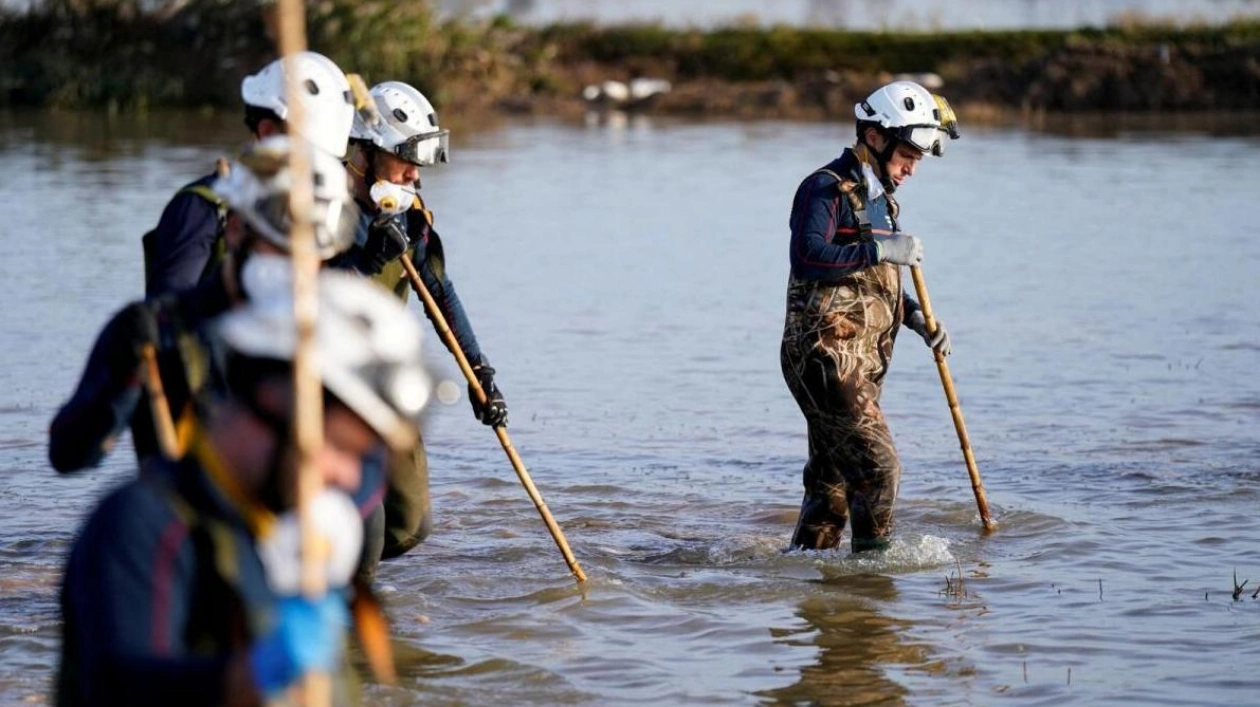Firefighters from the Basque Country are patrolling the Albufera rice fields in search of flood victims following heavy rains that have left over 50 people missing, according to Valencia's regional judicial authorities. The incident occurred near Valencia, Spain, on November 9, 2024. – Reuters
More than 10 days after Spain's worst floods in decades, a sea of mud and stagnant water has submerged several towns, causing a sickening stench and raising health concerns. "That's the rotten meat," said Toni Marco, pointing to a destroyed supermarket in the devastated town of Sedavi, where a disgusting odor was noticeable during an AFP visit. The meat was only recently removed, long after the floods cut off the refrigerators' electricity supply, added Marco, a 40-year-old employee of a private cleaning company. The nearby town of Catarroja remains a mud bath following the October 29 disaster that claimed 220 lives in southeastern Spain, with a powerful reek adding to the survivors' woes. The diversity of decomposing matter under the mud produces a range of smells, from mildly unpleasant to outright repulsive. "Each decomposition of an element smells differently," which explains the varying odors from street to street, said Angel Aldehuela, a 51-year-old firefighter from the southern Seville region. Dead animals may also be buried under the mud, he told AFP. When the mud dries, the organic matter decomposes without oxygen, and "that's where those unfamiliar smells start to appear," explained Miguel Rodilla, a biologist at Valencia's Polytechnic University. "There aren't necessarily bodies nearby, but simply organic matter decomposing." In scenes reminiscent of the Covid-19 pandemic, rescuers, volunteers, and residents have worn facemasks and gloves during the cleanup, while some people have complained of headaches and dizziness due to the stench. Breathing in the pestilential miasma "isn't ideal for health," but "higher concentrations" of decomposing matter would be necessary to make it toxic, said Rodilla. Stagnant water can trigger gastrointestinal disorders or pneumonia, Health Minister Monica Garcia told public radio RNE, but she ruled out the possibility of an "outbreak." The health board of the Valencia region, particularly affected by the floods, has reported no outbreak of infectious diseases or a major threat to public health. However, regional health authorities have asked local councils to implement measures to control and prevent the proliferation of mosquitoes and other insects capable of spreading diseases. Aldehuela warned that the foetid fumes enveloping Catarroja "will get worse, without a doubt," predicting they would linger for up to a week more. But in towns where the muck has been cleared swiftly, an aroma of bread or fruit has replaced the stench, said Javier Marcos, the head of the army's emergencies unit, on Friday. Protests are planned in Valencia and other cities on Saturday, as many affected locals accuse the authorities of underestimating and mishandling their response to the floods.
Source link: https://www.khaleejtimes.com






